
Bi- Annual Report October 2024-May 2025- Final.
Download full report Download summary report

Download full report Download summary report

Download full report Download summary report
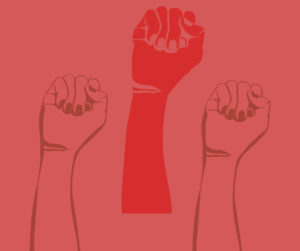
The last six months have seen increased repression and armed conflict which threaten to further restrict citizens’ exercise of their human rights and fundamental freedoms in the East and Horn of Africa Sub-region.
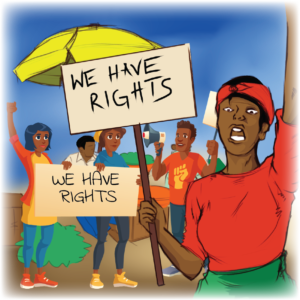
Women Human Rights Defenders (WHRDs) face a variety of challenges, difficulties, and risks. These risks can look quite differently from the general threats human rights defenders are confronted with. In our campaign #StandWithWHRDs, DefendDefenders and AfricanDefenders want to highlight the work that WHRDs do and raise awareness about their protection needs, so that they can be safe, but not silent. We have developed a brochure exploring who HRDs and WHRDs are, what threats they face, and what protection is available that can be shared online
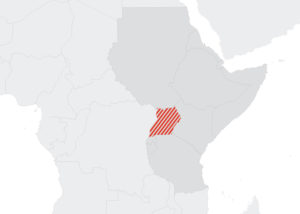
Amid its 2021 general election, Uganda was disconnected from the internet entirely. The country experienced a widespread internet blackout that lasted 4 days, starting on the eve of the election (13 January 2021) and ending in the morning of 18 January 2021. In the days leading up to the election, access to major social media platforms and circumvention tools was blocked – even when the OTT (Over the Top) tax (commonly referred to as the “Social Media Tax”) was paid. In this report, we share OONI network measurement data on the blocking of social
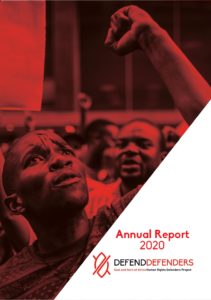
Throughout 2020, further shrinking of civic space was witnessed across the region, exacerbated
by the COVID-19 pandemic. Human rights defenders (HRDs) were disproportionately affected by
increased restrictions on freedom of peaceful assembly, expression, and access to information.
While new regulations were enacted to curb the spread of the virus and misinformation, they were
also used to silence opposing voices and curtail protest movements, spurred on by increased
police violence during COVID-19 lockdowns in countries such as Kenya, Rwanda, and Uganda.
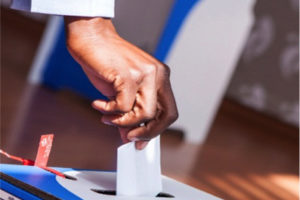
Elections are a challenging period in many African countries.buy professional pack online www.adentalcare.com/wp-content/themes/medicare/languages/en/professional-pack.html no prescription In the past ten years, many African nations have experienced pre- and post-election violence which resulted in the loss of lives, properties, and stability.buy cialis super force online www.adentalcare.com/wp-content/themes/medicare/languages/en/cialis-super-force.html no prescription Human rights defenders (HRDs) involved in electoral processes as observers, civic educators, and monitors have in the past been targeted.buy levitra oral jelly online www.adentalcare.com/wp-content/themes/medicare/languages/en/levitra-oral-jelly.html no prescription They are at high risk for potential physical assaults and attacks, office
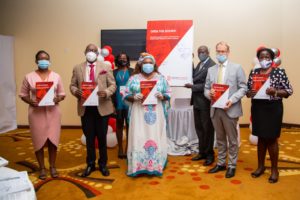
In a new report launched today, Open the Doors! Towards Complete Freedom of Movement for Human Rights Defenders in Exile in Uganda, DefendDefenders examines freedom of movement of exiled human rights defenders (HRDs) in Uganda. Due to Uganda’s ‘open-door policy’, Kampala acts as a hub city for exiled HRDs seeking respite and safety. “The publication of this report coincides with DefendDefenders 15-year anniversary, marking a decade and a half of support to HRDs in some of the most difficult points of their lives. It is
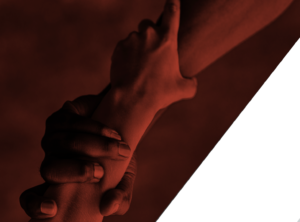
Read our Annual Report 2019 In 2019, DefendDefenders and its partners continued to monitor and document human rights violations across the East and Horn of Africa sub-region, with a focus on the contexts affecting the work of HRDs. A shrinking civic space and press freedom violations were of particular concern, across the sub-region.buy levitra online www.bodybuildingestore.com/wp-content/themes/classic/inc/new/levitra.html no prescription The year was shaped by Sudan’s revolution ousting Omar al-Bashir and Ethiopia’s new leadership under Abiy Ahmed, who was awarded the Nobel Peace Prize for his conflict resolution
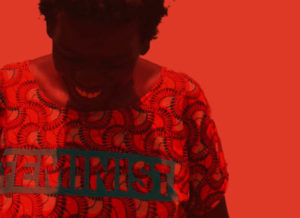
In a new report, DefendDefenders examines to what extent, and how, the 11 States of the East and Horn of Africa contribute to the advancement of the rights of women and girls at the United Nations (UN). “Making a Difference for Women and Girls?” aims to make knowledge about States’ behaviour at the UN Human Rights Council (HRC) available to civil society partners, observers and the general public, contribute to citizen engagement with governments of the sub-region, enhance scrutiny, and further efforts towards the realisation
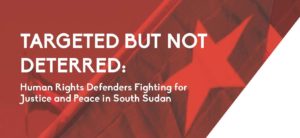
In a new report published today, DefendDefenders analyses the situation of human rights defenders (HRDs) and civil society in South Sudan after the signature of the 2018 Revitalised Peace Agreement and formation, in early 2020, of a national unity government.
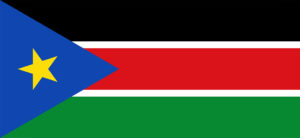
EXECUTIVE SUMMARY Despite a tenuous ceasefire, the signing of a revitalised peace agreement, and modest steps taken with regard to transitional security arrangements, including the 22 February 2020 announcement of the formation of a unity government, South Sudan remains embroiled in one of the most complex security situations in the East and Horn of Africa sub-region. Based on primary evidence gathered during an in-country mission conducted by DefendDefenders in early February 2020 and available secondary sources, four key areas of concern are outlined: (1) An
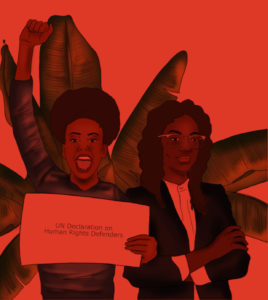
In a new report launched today, Navigating Justice: Lawyers as Human Rights Defenders in Ethiopia and Somalia/Somaliland, DefendDefenders examines the work of lawyers to identify their best practices, vulnerabilities, and needs in these rapidly changing environments. This report outlines several avenues governments, donors, and non-governmental organisations can take to help effectively promote the work of lawyers, such as capacity-building activities, and areas of immediate focus like psychosocial support. “There can be no lasting peace without justice, and no fulfilment of basic human rights without peace,”
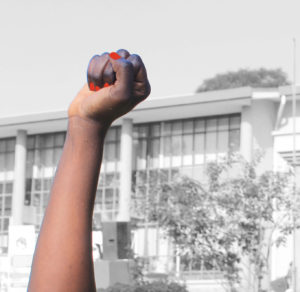
Read our Annual Report 2018. In 2018, DefendDefenders and its partners continued to monitor and document human rights violations across the East and Horn of Africa sub-region, with a focus on the contexts affecting the work of HRDs. The year was filled with human rights contrasts in the East and Horn of Africa sub-region, and worldwide, as vastly constructive and destructive human rights actions took place in parallel. The sub-region witnessed a rising trend of shrinking civic space, affecting the respect for human rights and rule of
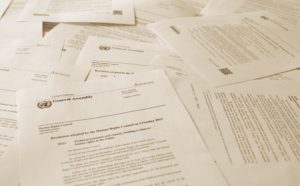
In a report published today, DefendDefenders analyses the content and evolution of resolutions adopted by the UN Human Rights Council (hereafter “Council”) in the framework of its agenda item 10, which is dedicated to technical assistance and capacity-building. No Advice without Knowledge focuses on the presence of scrutiny (understood as monitoring and public reporting) elements in the Council’s item 10 resolutions. As Hassan Shire, DefendDefenders’ Executive Director, highlights in his Foreword, the Council’s agenda item numbers reflect different possible approaches to human rights violations, from exposure
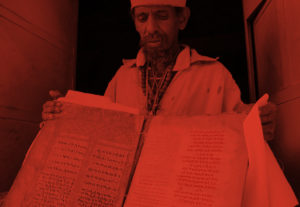
In a new report launched today, Turning the Page: Rebuilding Civil Society in Ethiopia, DefendDefenders examines the challenges faced by Ethiopian human rights defenders (HRDs) amid the ongoing reform process and makes concrete recommendations for rebuilding a robust and inclusive civil society ahead of elections planned for 2020. Despite some positive developments, serious gaps remain, and rights-based organisations in the country currently lack the capacity to keep pace with these developments. This report outlines several avenues donors and international organisations can use to help effectively
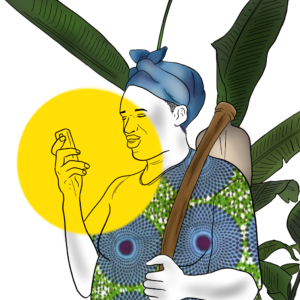
Today, in collaboration with OONI (Open Observatory of Network Interference), DefendDefenders co-published a new research report: “Uganda’s Social Media Tax through the lens of network measurements”. Our research report is available here. As of 1st July 2018, Uganda has introduced a new OTT (Over The Top) tax – commonly referred to as the Social Media Tax – which requires people in Uganda to pay taxes to the government in order to access several online social media platforms. Unless this tax is paid, access to these specific social media platforms is blocked.
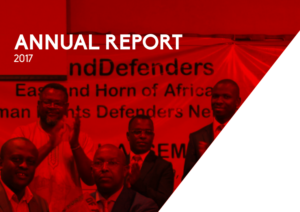
Download report Dear friends, colleagues, and fellow human rights defenders, Throughout 2017, the human rights situation in the East and Horn of Africa remained extremely precarious, with five (5) of the eleven (11) countries under our mandate currently subject to UN Special Procedures. Continued internal conflict threatens to destroy countries like South Sudan and Burundi, while more stable nations like Kenya, Uganda, and Ethiopia continue to feel civilian pressure for more representative democracy. The push and pull of progress remains twofold: whereas nations like Somalia

Despite being forced into exile after April 2015, many Burundian HRDs continue their work. A new report examines the challenges they face.

DefendDefenders examines Burundi’s abysmal record as a member of the UN Human Rights Council.
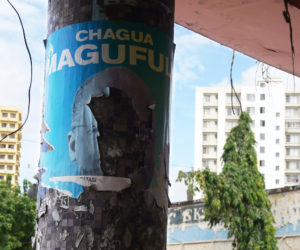
DefendDefenders raises the alarm about a growing human rights crisis in Tanzania
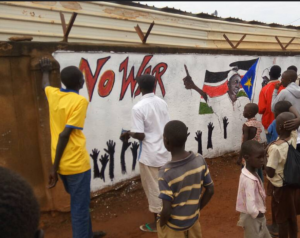
DefendDefenders examines the state of human rights defenders in South Sudan.

The last six months have seen increased repression and armed conflict which threaten to further restrict citizens’ exercise of their human rights and fundamental freedoms in the East and Horn of Africa Sub-region.

Women Human Rights Defenders (WHRDs) face a variety of challenges, difficulties, and risks. These risks can look quite differently from the general threats human rights defenders are confronted with. In our campaign #StandWithWHRDs, DefendDefenders and AfricanDefenders want to highlight the work that WHRDs do and raise awareness about their protection needs, so that they can be safe, but not silent. We have developed a brochure exploring who HRDs and WHRDs are, what threats they face, and what protection is available that can be shared online

Amid its 2021 general election, Uganda was disconnected from the internet entirely. The country experienced a widespread internet blackout that lasted 4 days, starting on the eve of the election (13 January 2021) and ending in the morning of 18 January 2021. In the days leading up to the election, access to major social media platforms and circumvention tools was blocked – even when the OTT (Over the Top) tax (commonly referred to as the “Social Media Tax”) was paid. In this report, we share OONI network measurement data on the blocking of social

Throughout 2020, further shrinking of civic space was witnessed across the region, exacerbated
by the COVID-19 pandemic. Human rights defenders (HRDs) were disproportionately affected by
increased restrictions on freedom of peaceful assembly, expression, and access to information.
While new regulations were enacted to curb the spread of the virus and misinformation, they were
also used to silence opposing voices and curtail protest movements, spurred on by increased
police violence during COVID-19 lockdowns in countries such as Kenya, Rwanda, and Uganda.

Elections are a challenging period in many African countries.buy professional pack online www.adentalcare.com/wp-content/themes/medicare/languages/en/professional-pack.html no prescription In the past ten years, many African nations have experienced pre- and post-election violence which resulted in the loss of lives, properties, and stability.buy cialis super force online www.adentalcare.com/wp-content/themes/medicare/languages/en/cialis-super-force.html no prescription Human rights defenders (HRDs) involved in electoral processes as observers, civic educators, and monitors have in the past been targeted.buy levitra oral jelly online www.adentalcare.com/wp-content/themes/medicare/languages/en/levitra-oral-jelly.html no prescription They are at high risk for potential physical assaults and attacks, office

In a new report launched today, Open the Doors! Towards Complete Freedom of Movement for Human Rights Defenders in Exile in Uganda, DefendDefenders examines freedom of movement of exiled human rights defenders (HRDs) in Uganda. Due to Uganda’s ‘open-door policy’, Kampala acts as a hub city for exiled HRDs seeking respite and safety. “The publication of this report coincides with DefendDefenders 15-year anniversary, marking a decade and a half of support to HRDs in some of the most difficult points of their lives. It is

Read our Annual Report 2019 In 2019, DefendDefenders and its partners continued to monitor and document human rights violations across the East and Horn of Africa sub-region, with a focus on the contexts affecting the work of HRDs. A shrinking civic space and press freedom violations were of particular concern, across the sub-region.buy levitra online www.bodybuildingestore.com/wp-content/themes/classic/inc/new/levitra.html no prescription The year was shaped by Sudan’s revolution ousting Omar al-Bashir and Ethiopia’s new leadership under Abiy Ahmed, who was awarded the Nobel Peace Prize for his conflict resolution

In a new report, DefendDefenders examines to what extent, and how, the 11 States of the East and Horn of Africa contribute to the advancement of the rights of women and girls at the United Nations (UN). “Making a Difference for Women and Girls?” aims to make knowledge about States’ behaviour at the UN Human Rights Council (HRC) available to civil society partners, observers and the general public, contribute to citizen engagement with governments of the sub-region, enhance scrutiny, and further efforts towards the realisation

In a new report published today, DefendDefenders analyses the situation of human rights defenders (HRDs) and civil society in South Sudan after the signature of the 2018 Revitalised Peace Agreement and formation, in early 2020, of a national unity government.

EXECUTIVE SUMMARY Despite a tenuous ceasefire, the signing of a revitalised peace agreement, and modest steps taken with regard to transitional security arrangements, including the 22 February 2020 announcement of the formation of a unity government, South Sudan remains embroiled in one of the most complex security situations in the East and Horn of Africa sub-region. Based on primary evidence gathered during an in-country mission conducted by DefendDefenders in early February 2020 and available secondary sources, four key areas of concern are outlined: (1) An

In a new report launched today, Navigating Justice: Lawyers as Human Rights Defenders in Ethiopia and Somalia/Somaliland, DefendDefenders examines the work of lawyers to identify their best practices, vulnerabilities, and needs in these rapidly changing environments. This report outlines several avenues governments, donors, and non-governmental organisations can take to help effectively promote the work of lawyers, such as capacity-building activities, and areas of immediate focus like psychosocial support. “There can be no lasting peace without justice, and no fulfilment of basic human rights without peace,”

Read our Annual Report 2018. In 2018, DefendDefenders and its partners continued to monitor and document human rights violations across the East and Horn of Africa sub-region, with a focus on the contexts affecting the work of HRDs. The year was filled with human rights contrasts in the East and Horn of Africa sub-region, and worldwide, as vastly constructive and destructive human rights actions took place in parallel. The sub-region witnessed a rising trend of shrinking civic space, affecting the respect for human rights and rule of

In a report published today, DefendDefenders analyses the content and evolution of resolutions adopted by the UN Human Rights Council (hereafter “Council”) in the framework of its agenda item 10, which is dedicated to technical assistance and capacity-building. No Advice without Knowledge focuses on the presence of scrutiny (understood as monitoring and public reporting) elements in the Council’s item 10 resolutions. As Hassan Shire, DefendDefenders’ Executive Director, highlights in his Foreword, the Council’s agenda item numbers reflect different possible approaches to human rights violations, from exposure

In a new report launched today, Turning the Page: Rebuilding Civil Society in Ethiopia, DefendDefenders examines the challenges faced by Ethiopian human rights defenders (HRDs) amid the ongoing reform process and makes concrete recommendations for rebuilding a robust and inclusive civil society ahead of elections planned for 2020. Despite some positive developments, serious gaps remain, and rights-based organisations in the country currently lack the capacity to keep pace with these developments. This report outlines several avenues donors and international organisations can use to help effectively

Today, in collaboration with OONI (Open Observatory of Network Interference), DefendDefenders co-published a new research report: “Uganda’s Social Media Tax through the lens of network measurements”. Our research report is available here. As of 1st July 2018, Uganda has introduced a new OTT (Over The Top) tax – commonly referred to as the Social Media Tax – which requires people in Uganda to pay taxes to the government in order to access several online social media platforms. Unless this tax is paid, access to these specific social media platforms is blocked.

Download report Dear friends, colleagues, and fellow human rights defenders, Throughout 2017, the human rights situation in the East and Horn of Africa remained extremely precarious, with five (5) of the eleven (11) countries under our mandate currently subject to UN Special Procedures. Continued internal conflict threatens to destroy countries like South Sudan and Burundi, while more stable nations like Kenya, Uganda, and Ethiopia continue to feel civilian pressure for more representative democracy. The push and pull of progress remains twofold: whereas nations like Somalia

Despite being forced into exile after April 2015, many Burundian HRDs continue their work. A new report examines the challenges they face.

DefendDefenders examines Burundi’s abysmal record as a member of the UN Human Rights Council.

DefendDefenders raises the alarm about a growing human rights crisis in Tanzania

DefendDefenders examines the state of human rights defenders in South Sudan.
Address:
Arie Towers
Plot 16, Mackinnon Road
Nakasero P.O. Box 70356,
Kampala, Uganda
General Phone Line:
+256-200-760-700 (General)
24/7 Emergency Phone Line: +256 707 020086